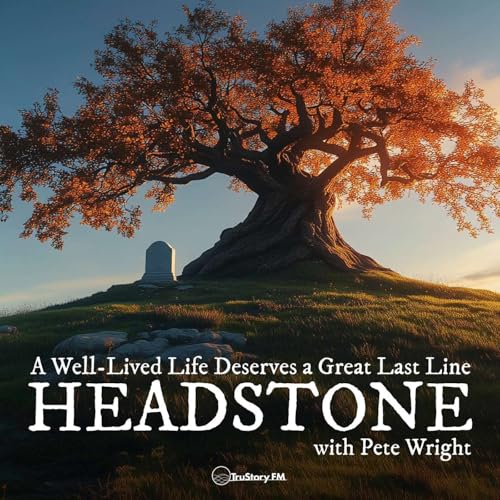There’s a moment in every western where a lone figure walks into a dusty town. They are anonymous—neither good nor evil, simply unknown. They solve a problem, provoke a conflict, heal a wound, and just as quickly, disappear.
What if legacy isn’t about how long you stay, but how fully you show up?
This week on Headstone, Pete Wright invites his long-time friend and co-host Seth Nelson into a very different kind of conversation—one not about legal advice or custody battles, but about the invisible residue we leave behind in the lives we touch.
Seth is a divorce attorney by trade, a poker player by instinct, and, perhaps most profoundly, a student of legacy by experience. His story meanders through the Cayman Islands, across card tables and courtrooms, through loss and love, always circling one question: How do we know we mattered?
We follow Seth from his teenage soccer match in Costa Rica to his mother’s groundbreaking civil rights career, to coffee service in bed—a ritual so small and ordinary that it becomes, in time, sacred. Along the way, we confront the false promises of performative legacy: buildings named, awards given, eulogies delivered. And in their place, we find something quieter, something harder to quantify: a client’s peace, a child’s smile, a son’s reflection.
Seth doesn’t stay in his clients’ lives. He isn’t supposed to. But he shows up when it counts. And then he leaves, leaving something behind.
Because maybe the measure of a legacy isn’t in what people remember. It’s in what they feel, long after they forget your name.
🪦 Links & Notes
• How to Split a Toaster – Pete and Seth’s other podcast
• Learn more about Headstone
 2025/11/2952 分
2025/11/2952 分 2025/11/011 時間 6 分
2025/11/011 時間 6 分 2025/10/111 時間 7 分
2025/10/111 時間 7 分 55 分
55 分 55 分
55 分 51 分
51 分 56 分
56 分 50 分
50 分
